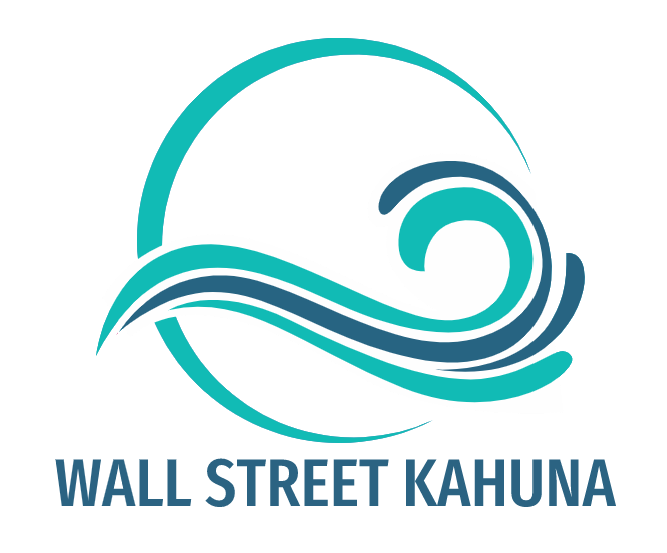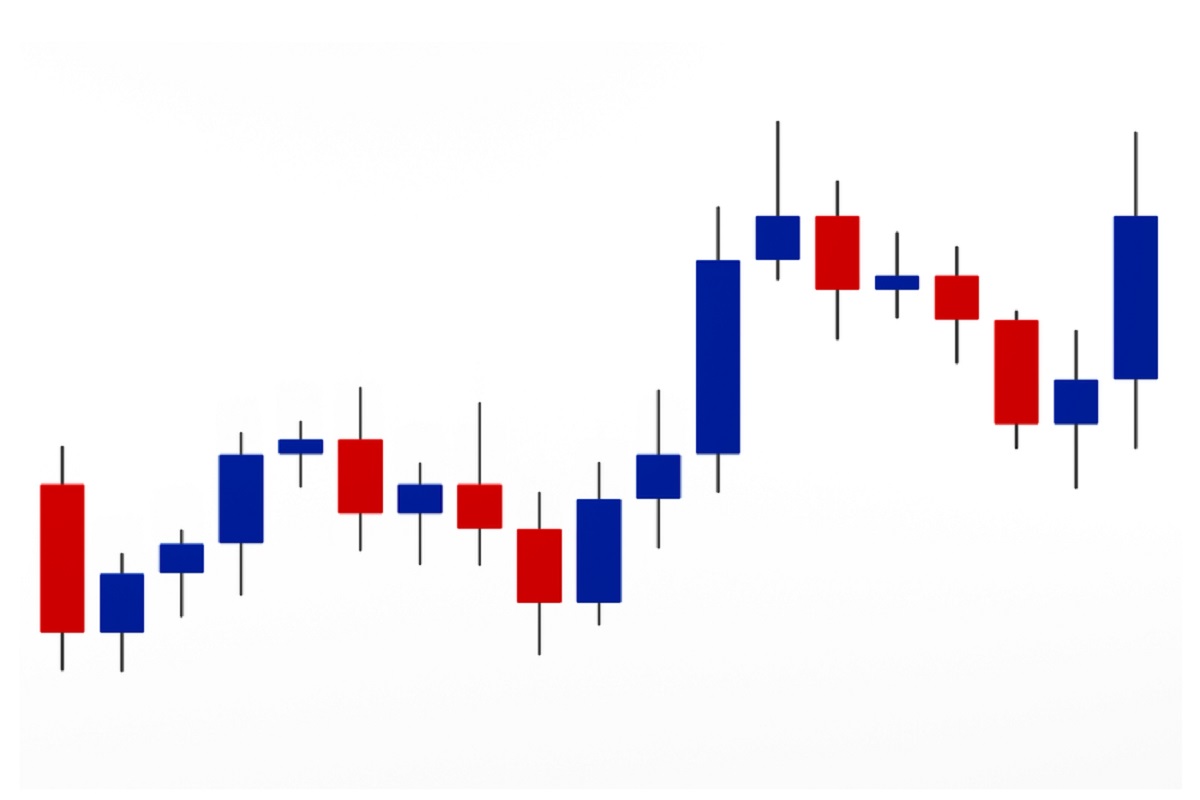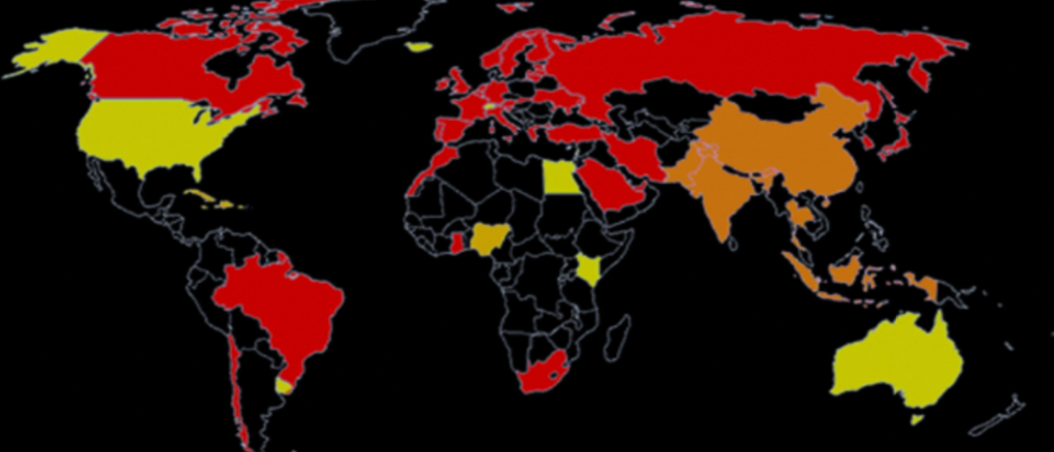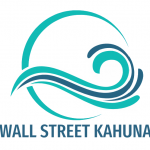Shares of these fast-growing businesses are down by between 41% and 63% year to date.
Making sure your investment thesis in a company remains true should be far more important to your stock buying and selling decisions than the market’s reaction to that company’s latest earnings report.
Consider the four stocks that we will look at today: SoFi Technologies (SOFI -2.91%), Trex (TREX -1.09%), Yeti (YETI -2.57%), and Global-e Online (GLBE -3.02%). While Trex and Yeti reported mixed earnings, SoFi and Global-e shined — but, more importantly, the investment thesis for each looks healthier than ever. And yet, these four stocks are still trading down at least 47% or more year to date.
Let’s look at why it makes sense to put at least $100 into any (or all) of these four stocks for the long term.
1. SoFi Technologies
With over 4.3 million members using 6.5 million of its financial products, diversified fintech Sofi is becoming a force in the financial industry. Led by its mission “to help our members achieve financial independence in order to realize their ambitions,” SoFi’s share price has declined by 57% in the last year, despite its revenue rising 44% over that same time.
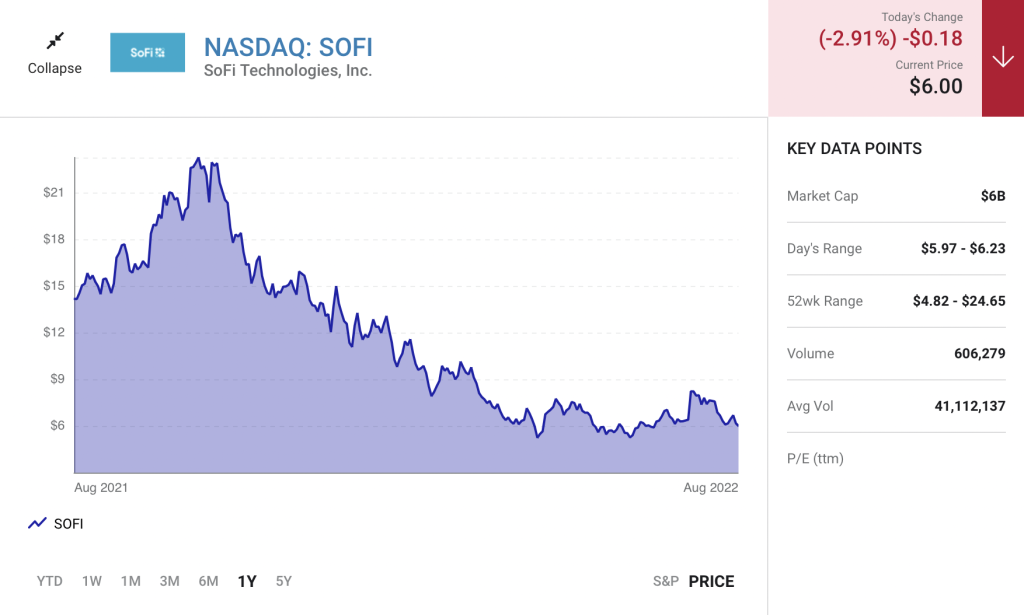
With three operating segments — lending, technology platform, and financial services — SoFi offers a blend of growth optionality that brings natural diversification. For example, its oldest business line, student loans, saw originations drop over 50% year over year in the second quarter of 2022. Despite this, the company saw overall revenue growth of 50% in that period, led by personal loan originations nearly doubling.
Furthermore, its technology platform and financial services segments create a flywheel of fintech solutions. In Q2, these segments accounted for nearly one-third of SoFi’s revenue after accounting for less than 3% in early 2020. With these developing units growing at almost triple-digit percentage rates year over year, SoFi’s steadily improving profit margin is highly encouraging.
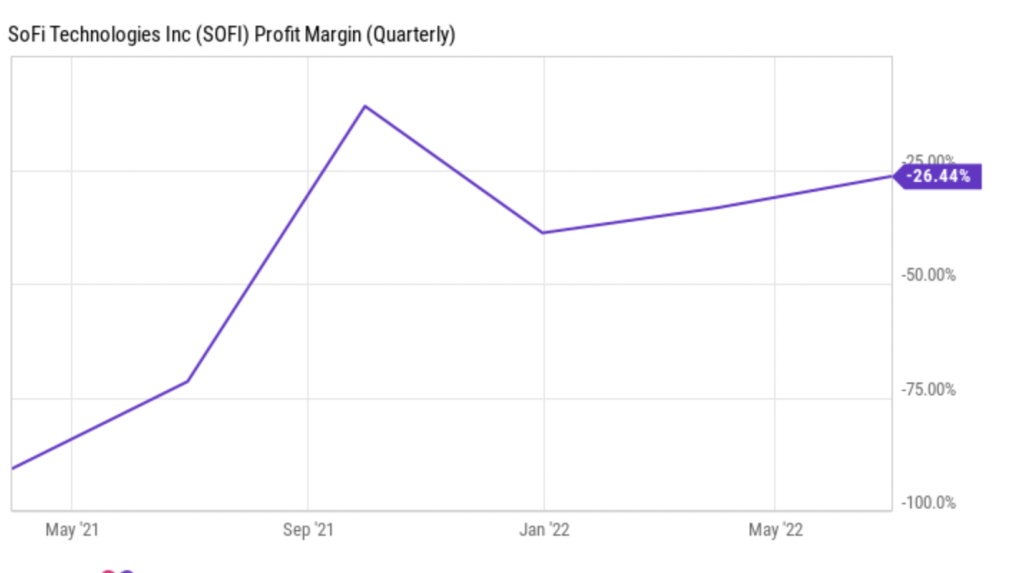
Moreover, with its technology platform acting as the rails on which the broader fintech economy runs, SoFi is a great way to profit from the seemingly unstoppable adoption of digital banking.
2. Trex
Although eco-friendly patio decking may not scream market-beating returns, outdoor living specialist Trex has posted an incredible 1,200% increase in share price over the last decade.
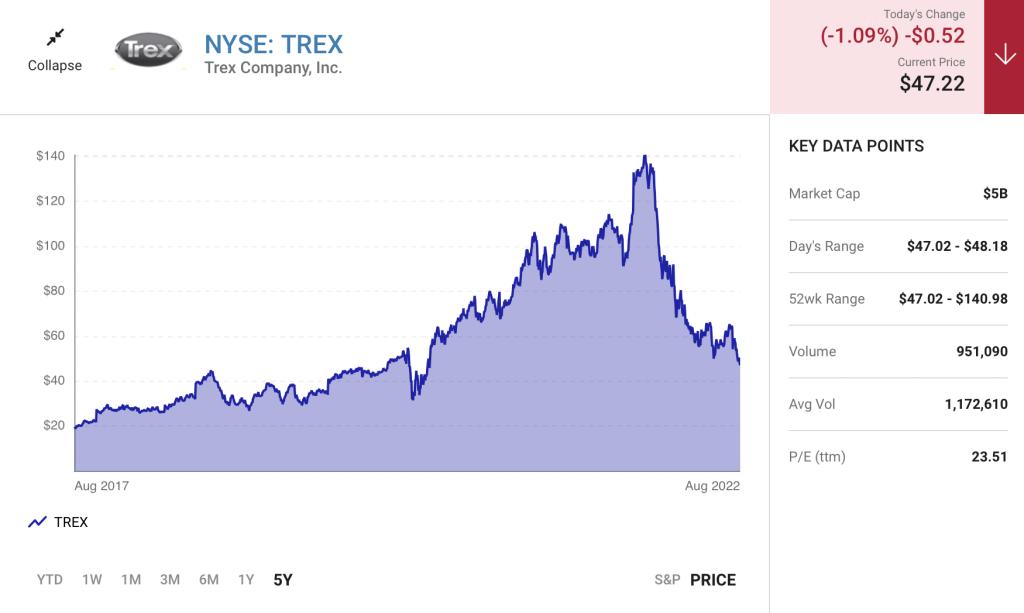
Thanks to its sustainable products, which are comprised mainly of reclaimed wood fibers and recycled polyethylene film, Trex has exploded onto the scene by offering deck builders a more durable and lower maintenance alternative to wood. While more expensive than wood up front, Trex’s products offer a unique value proposition over the long term. Due to the higher maintenance costs of wood decks, Trex requires a payback period of only three years to be a better value than wood.
In addition to the environmental benefits of investing in Trex products for consumers, the company has been an incredible performer financially, growing revenue and earnings per share (EPS) annually by 25% and 29%, respectively, over the last three years.
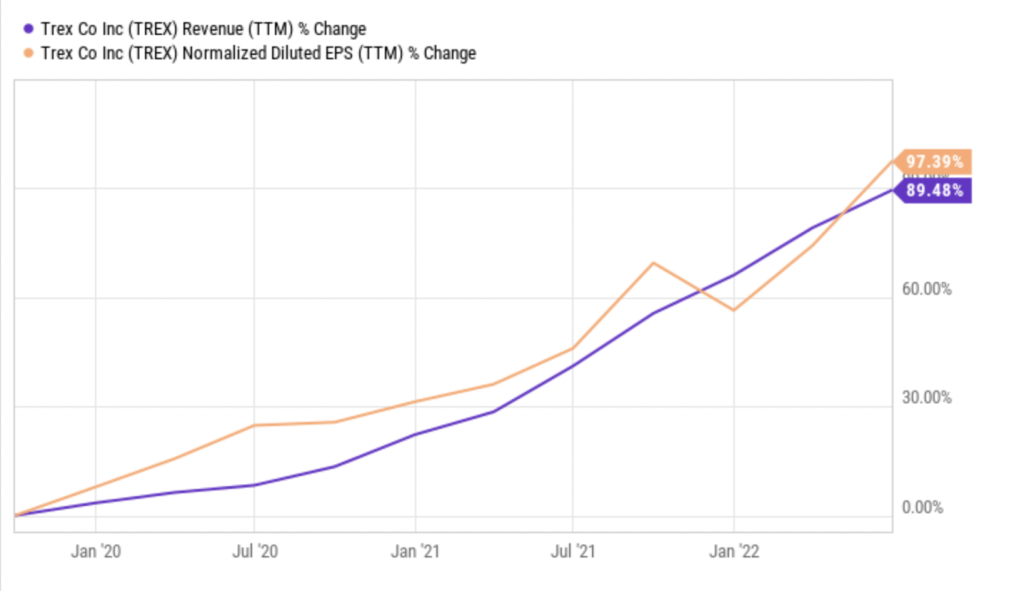
In its most recent quarter, Trex grew revenue by 24% while EPS rose a stunning 49%, despite a challenging supply chain environment. This growth highlights the power of Trex’s vertically integrated operations, as well as the public’s appetite for eco-friendly alternatives to wood.
Best yet for investors, wood still accounts for 75% of deck sales. This means Trex has a tremendous runway for growth. Its management team estimates that each percentage of market share that it converts to composite sales will be worth $80 million in additional annual revenue.
Trading at its lowest price-to-earnings ratio of the last decade, Trex looks like an outstanding company to buy and hold for the long term.
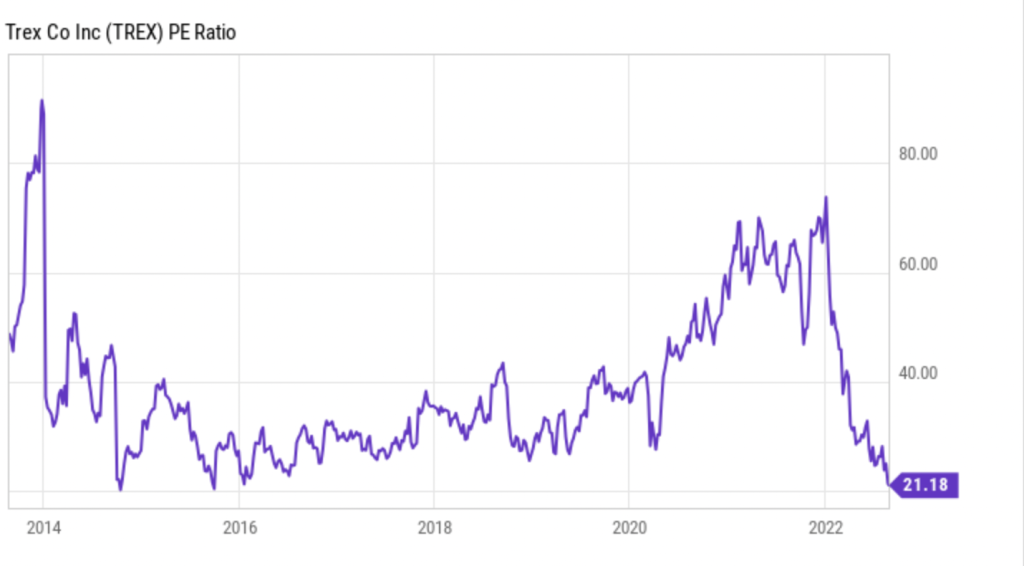
3. Yeti
Though outdoor products manufacturer Yeti grew its sales by 17% year over year in the second quarter, shares of the company have continued to march downward in 2022.
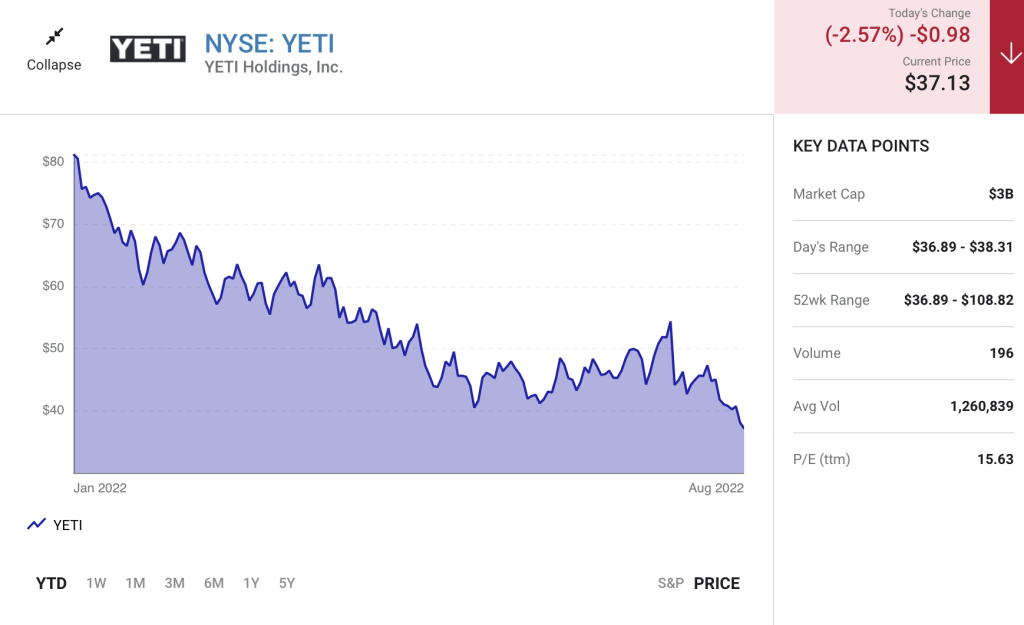
Its latest declines were sparked by Yeti’s gross profit margin dropping by more than 6 percentage points in Q2 2022 and management guiding for EPS to drop 5% to 10% for the full year. Hampered by higher inbound freight costs for its products, Yeti saw EPS decline by 7% for the second quarter.
However, despite these shorter-term concerns, Yeti’s brand power continues to increase steadily.
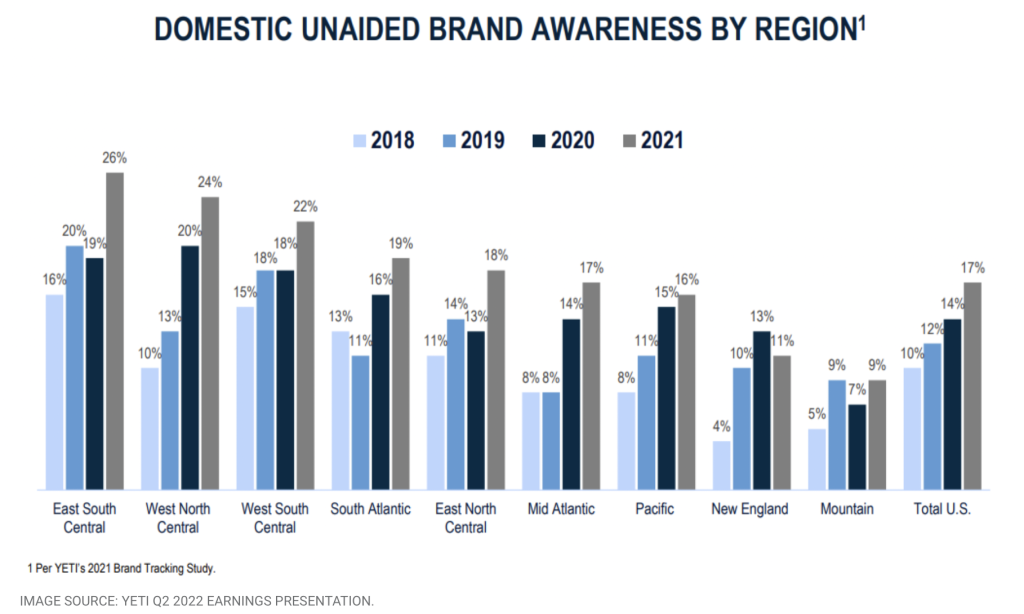
On top of its growing brand awareness, Yeti now boasts 1.7 million Instagram and 300,000 TikTok followers — giving it an unusually strong reach for a small-cap company.
Now trading at only 17 times earnings, Yeti’s burgeoning direct-to-consumer (DTC) and international sales may be too cheap.
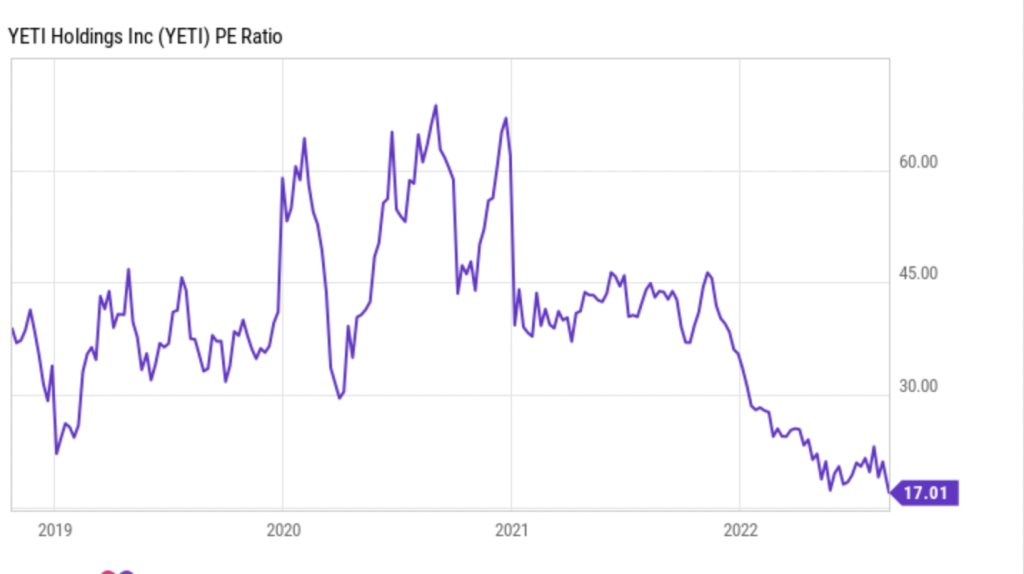
Though international sales grew by 35% year over year in the second quarter, they only represent 12% of Yeti’s revenue, so the company’s long-term growth is just getting started.
4. Global-e Online
Global-e Online intends to use its software platform to bring direct-to-consumer (DTC) cross-board e-commerce sales to the global stage. In Q2, it grew its gross merchandise volume and revenue by 64% and 52%, respectively, compared to the prior-year quarter. However, recent partnerships with Walt Disney and Shopify have the stock beginning to rebound.
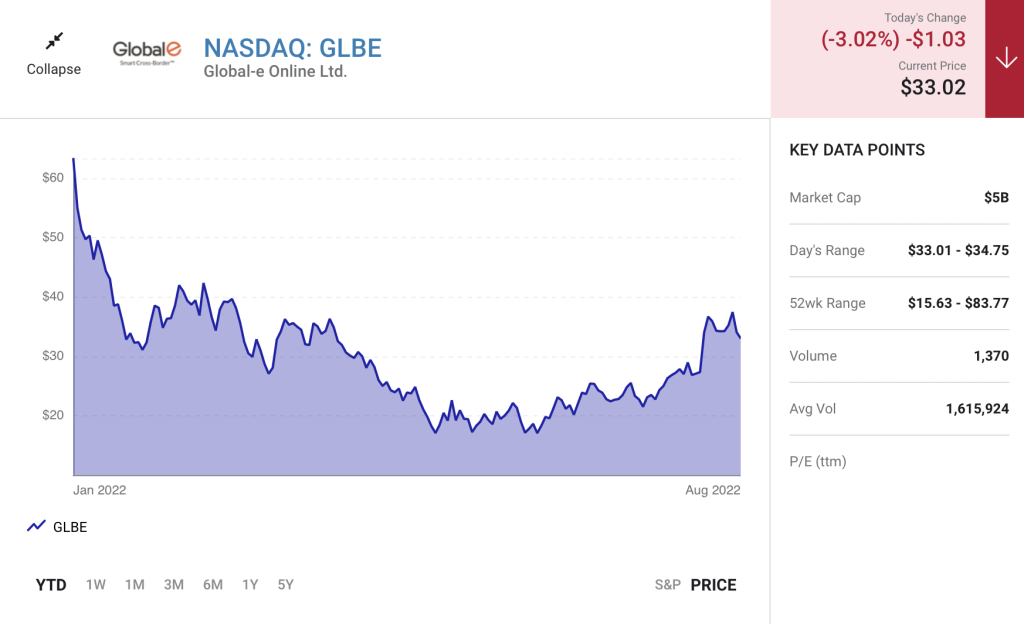
The company will support Disney’s global DTC operations, with operations currently launching across several regions in Asia. This partnership is an almost unbelievable win for Global-e and highlights that despite its market capitalization of just $5 billion, its ability to enable global sales is enticing to even the most prominent brands.
Similarly, the company’s collaboration with Shopify further illustrates just how intricately complex Global-e’s operations are — the e-commerce behemoth would rather partner with (and invest in) the upstart Global-e than try to compete with it. Dozens of businesses have gone live using the integration between Global-e and Shopify’s platform, and this number should rise exponentially as the two continue working together.
Global-e has the makings of what looks to be an incredible moat, but its stock is still quite expensive on a price-to-sales basis — even after selling off from its autumn 2021 highs.
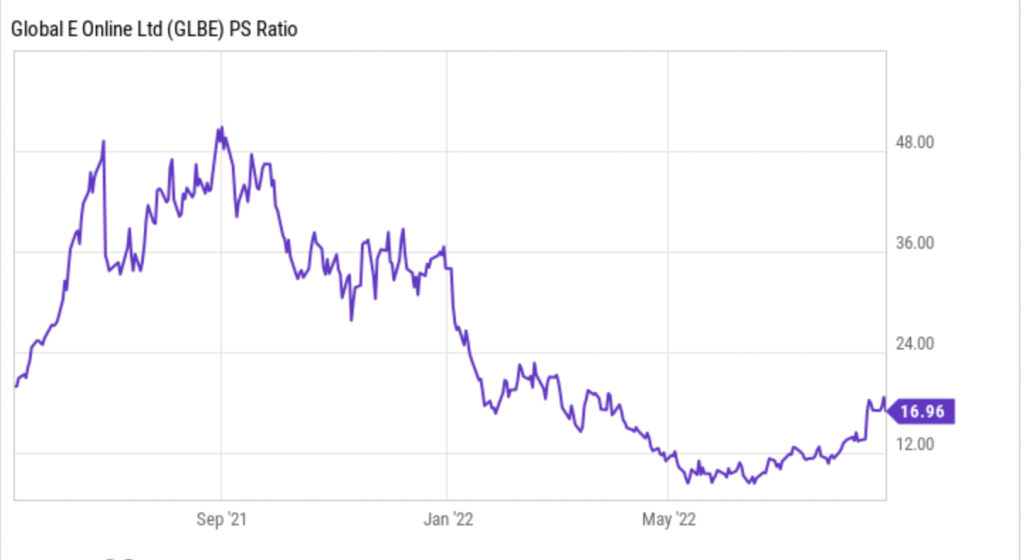
However, should it continue landing significant brand partnerships like Disney, it could quickly outgrow its still-high valuation.
Read Next: : The One-Ticker Retirement Plan –“Over the Shoulder” Demo Now Available
Market Wizard Larry Benedict crushed the market in 2022.
But he hasn’t done it with a “traditional” method…
For a limited time, he’s sharing a free over-the-shoulder “demo” of his strategy in action.
It’s less than 10 seconds –watch it here.

